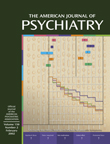Elements of Clinical Research in Psychiatry
This book is an introduction to research in psychiatry, written by well-respected investigators. In spite of being written by four people, which would seem to be a recipe for confusion, the book is impressively well organized. Chapters on research design, measurement, assessment, and basic statistics are clear and will be helpful to those beginning a career in research.
The authors include a description of the Congressional exploration of the Baltimore-Imanishi-Kari-O’Toole case in their chapter on misconduct and ethics. This was a case that spattered mud on the reputations of many, consumed vast amounts of time and money, and may have derailed some careers. The relevance to psychiatric research is not clear to me. We should be relieved that the authors had to go outside of psychiatry to come up with such a sensational dispute.
There is a valuable discussion of the history and role of institutional review boards and descriptions of the structure of the National Institutes of Health, the National Institute of Mental Health, and their grant procedures. An appendix includes many useful names and numbers and some widely used rating scales.
One of the appeals of this book is its brevity; yet, inevitably, that is also one of its shortcomings. A description from the authors of the current controversy surrounding the use of placebos in clinical drug trials would have been welcome. I would have been interested in the authors’ opinions on some other practical, perhaps mundane, topics that are often vexing: the influence of pharmaceutical companies on research, the management of budgets, and the hiring and employment of research assistants. One of the most fruitful yet peril-laden enterprises in research is that of collaboration. How have these four researchers worked together so well to produce such a seamless piece of work? Given the obvious good sense of these researchers, I suspect that they would have some pearls to pass on in these difficult areas.
The authors have succeeded in writing a thoughtful and very useful introduction to research in psychiatry. Residents considering a career in psychiatric research and psychiatrists who are mentoring residents will find this book very useful. I look forward to future, expanded editions.



